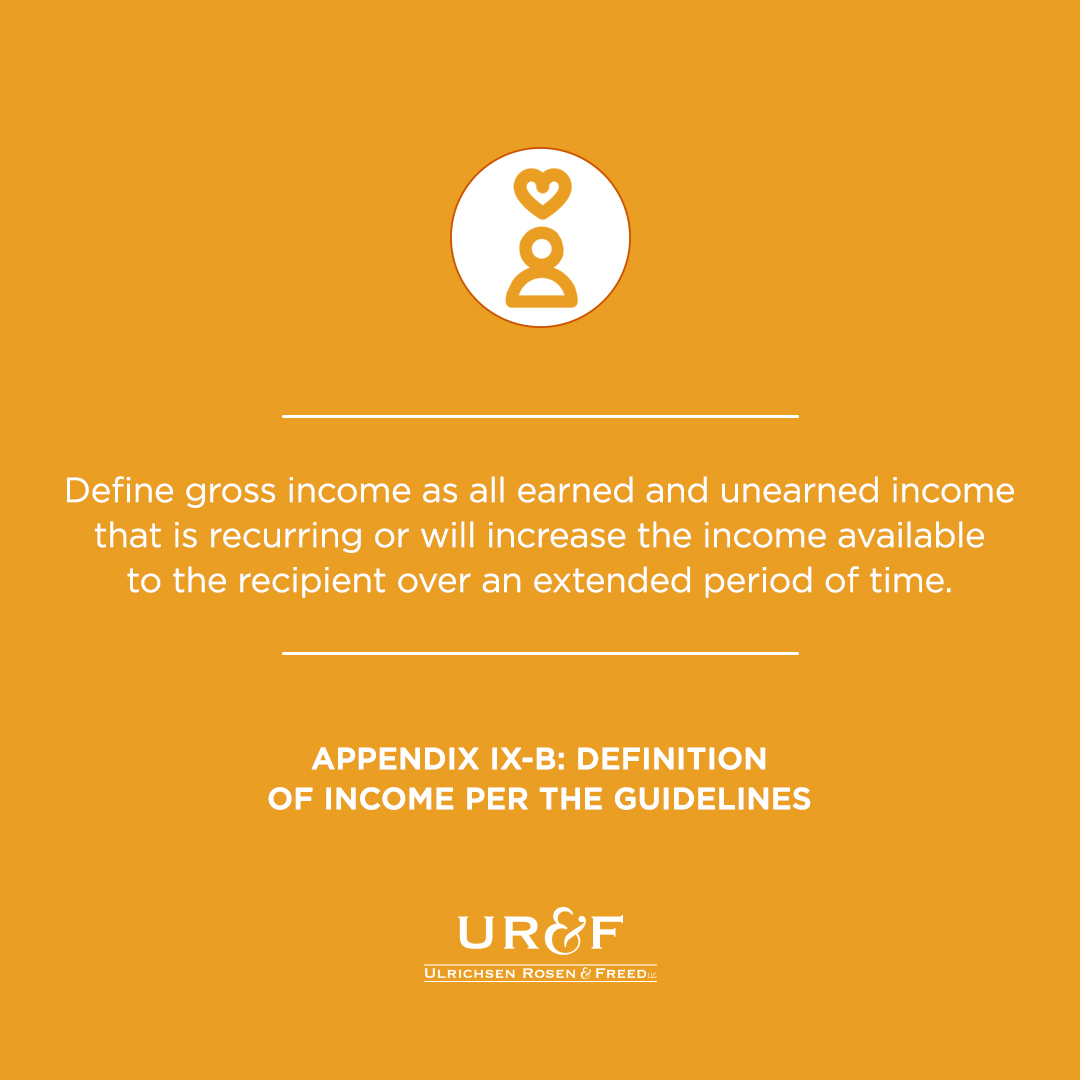Appendix IX-B: Definition of Income Per The Guidelines
The New Jersey Child Support Guidelines through Appendix IX-B define gross income as all earned and unearned income that is recurring or will increase the income available to the recipient over an extended period of time. When determining whether an income source should be included in the child support guidelines calculation, the court should consider if it would have been available to pay expenses related to the child if the family would have remained intact or would have formed and how long that source would have been available to pay those expenses.
For purposes of child support, gross income includes, but is not limited to, income from the following sources:
- Compensation for services, including wages, fees, tips, and commissions;
- The operation of a business minus ordinary and necessary operating expenses;
- Gains derived from dealings in property;
- Interest and dividends;
- Rents;
- Bonuses and royalties;
- Alimony and separate maintenance payments received from the current or past relationships; Annuities or an interest in a trust;
- Life insurance and endowment contracts;
- Distributions from government and private retirement plans including Social Security, Veteran’s Administration, Railroad Retirement Board, deferred compensation, Keoughs and IRA’s;
- Personal injury awards or other civil lawsuits;
- Interest in a decedent’s estate or a trust;
- Disability grants or payments (including Social Security disability);
- Profit sharing plans;
- Worker’s compensation;
- Unemployment compensation benefits;
- Overtime, part-time and severance pay;
- Net gambling winnings;
- The sale of investments (net capital gain) or earnings from investments;
- Income tax credits or rebates (excluding the federal and state Earned Income Credit
- and the New Jersey homestead rebate);
- Unreported cash payments (if identifiable);
- The value of in-kind benefits; and
- Imputed income.
As discerned from the expansive list of what constitutes income for purposes of child support, New Jersey takes a very liberal approach to areas which shall be included in the support analysis. It is important to note that although the IRS allows various business expenses to be deducted from income, New Jersey child support law excludes numerous business deductions such as home office allocations, entertainment, automobile expenses and various depreciation expenses. While this may seem inconsistent and inequitable to some, New Jersey adapts the philosophy that children should not be the economic victims of divorce and they are entitled to share in the current income of both parents.
If you have questions regarding the calculation of income for purposes of child support, the attorneys at Ulrichsen Rosen & Freed LLC can assist you. Our attorneys recognize that every child support case is unique and have significant experience advising clients how to best navigate issues surrounding such applications. Our firm is focused exclusively on the practice of family law and serves clients throughout New Jersey including clients residing in Mercer County, Somerset County, Hunterdon County, Burlington County and Middlesex County.


